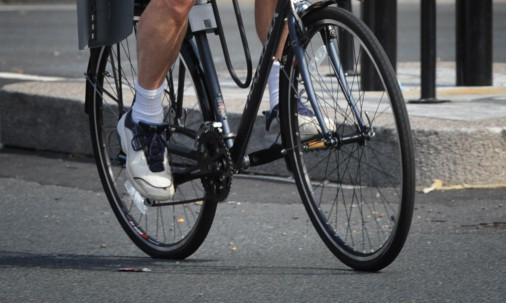A new government road safety campaign has been criticised as showing “a lack of commitment” to saving lives on Scotland’s roads.
The claim has been made by cycling campaign group Pedal on Parliament (POP) ahead of the launch of the Nice Way Code advertising campaign which is sponsored by the Scottish Government.
A statement issued on behalf of POP said: “Research shows that the most effective means to reduce road deaths are changes to the road environment and lower speeds.
“Education campaigns, especially where not backed up by visible enforcement, do very little. Spending nearly £500,000 asking drivers, cyclists and pedestrians all to be nicer to one another offers poor value for money on its own.”
The group went on to criticise the government’s 2012 campaign, Give me Cycle Space, as doing little to reassure parents that their children would be safe on their bikes. “This “words rather than actions” approach demonstrates the government’s lack of commitment to saving the lives of cyclists and other vulnerable road users,” the statement read.
“It is particularly urgent in light of five years of rising cycling deaths, with nine cyclists already killed in 2013; the same total as the whole of 2012 with five months of the year still to go. In 2009 the total was just four.”
Sally Hinchcliffe, one of the organisers of POP, said: “While we don’t disagree that behaviour needs to improve between road users, simply asking us all to be nice to one another without backing it up with real changes and enforcement is a waste of taxpayers’ money.
“Most drivers don’t set out to harm anyone, whether they’re cyclists or not. It’s the way our roads are designed and policed that put drivers and people on bikes into conflict.
“We’d rather see that money spent on cutting speeds, or improving known accident black spots.”
POP released their statement before transport minister Keith Brown is due to launch the Nice Way Code on Tuesday with the support of Cycling Scotland and the Institute of Advanced Motorists in Glasgow for the campaign which starts on Monday August 5.
A Scottish Government spokesman said: “Road safety is everyone’s responsibility and we make no apology for raising awareness of this issue or for seeking to improve behaviour.
“As Pedal on Parliament are acutely aware from our recent meetings, this campaign isn’t being run in isolation. Effective road safety relies on the three ‘E’s – education, enforcement and engineering.
“In terms of funding, an average of £3.80 per head is currently spent on cycling in Scotland – more than double the amount being spent in England outside of London. Promoting cycling needs to be a partnership endeavour and we are working across ministerial portfolios to identify opportunities to enhance funding where possible.
“We are currently investing almost £58 million on cycling infrastructure, training and road safety projects through Cycling Scotland, Sustrans and local authorities. Funding of £20 million goes directly to local authorities for cycling, walking and Safer Streets projects. Together, these three approaches can reduce casualties on Scotland’s roads.
“We also held extensive stakeholder consultations during the creative process for the Nice Way Code which is supported by the likes of the AA, the Bike Station, Cycling Scotland, IAM, Paths for All, Police Scotland, the RHA, and Sustrans, to name just a few.”
In 2013 4,000 people cycled to the Scottish Parliament to support the POP manifesto which calls for greater funding for cycling, to include cycling in road design and safer speeds as part of their eight points.
Last Monday a woman died while cycling on the day that campaigners gathered to call for investment in cycle safety measures.
